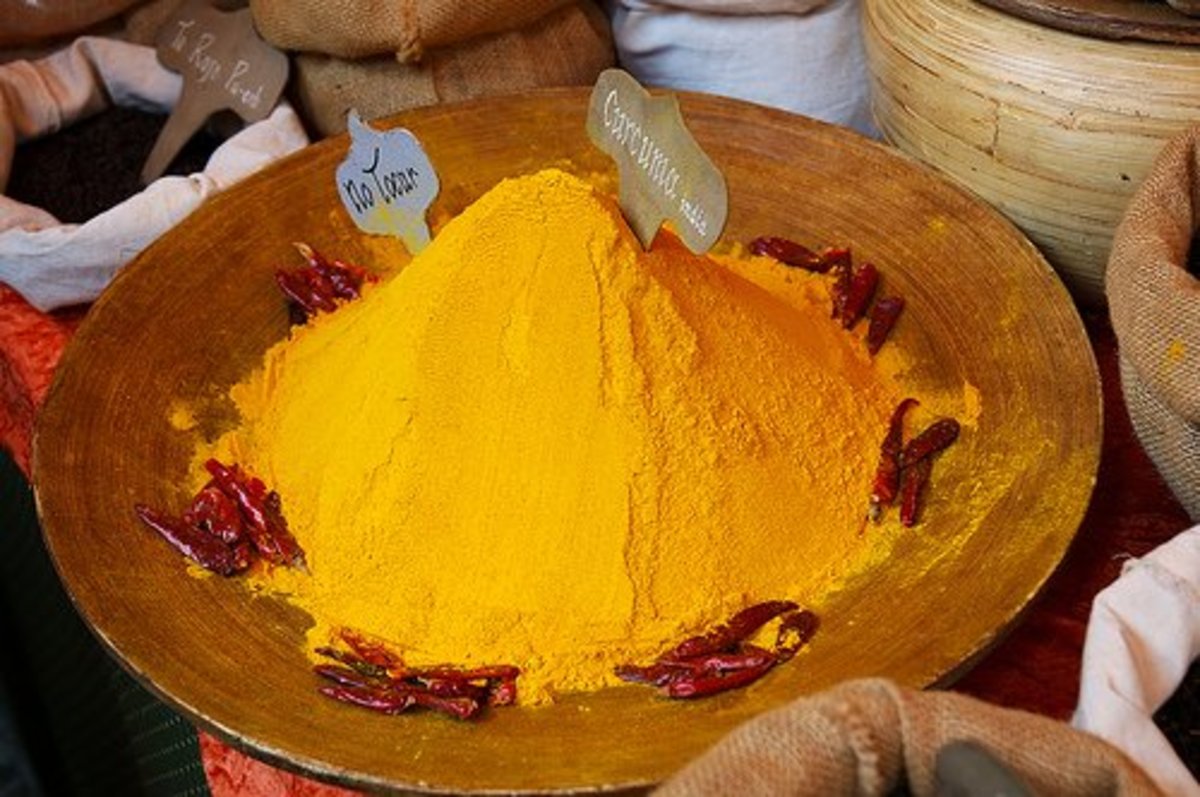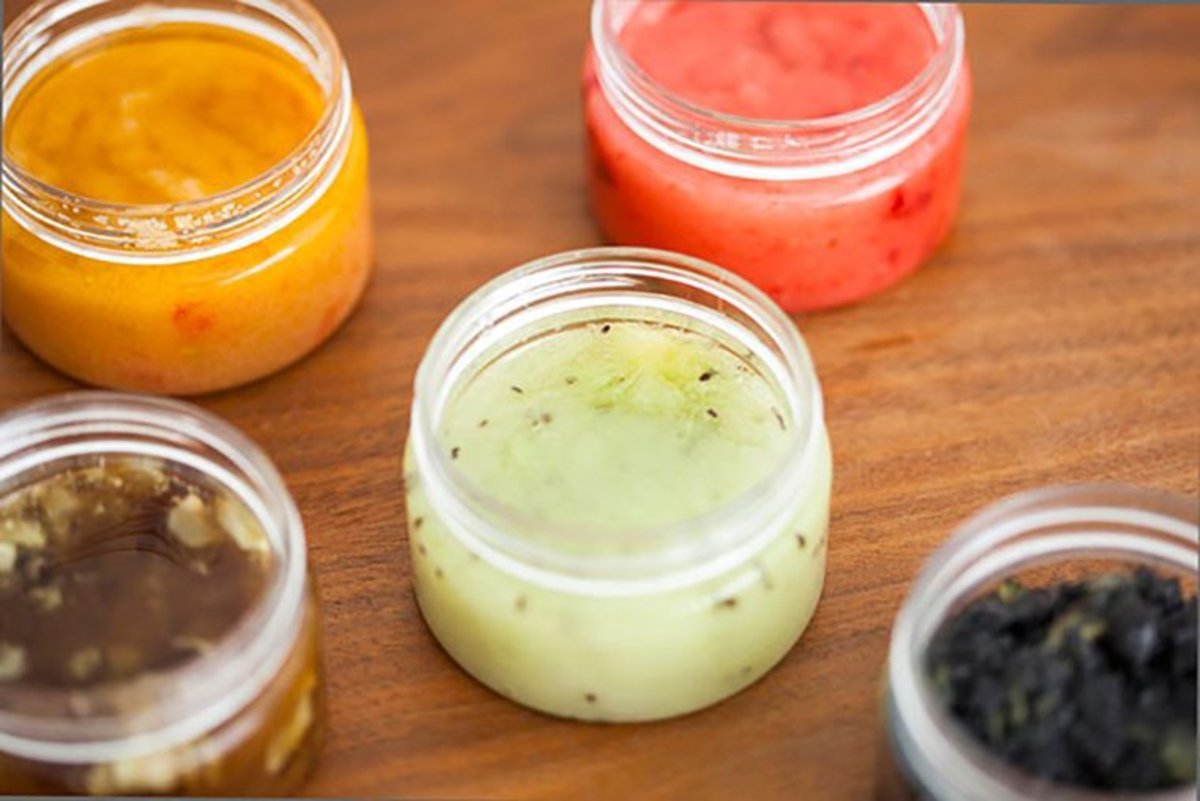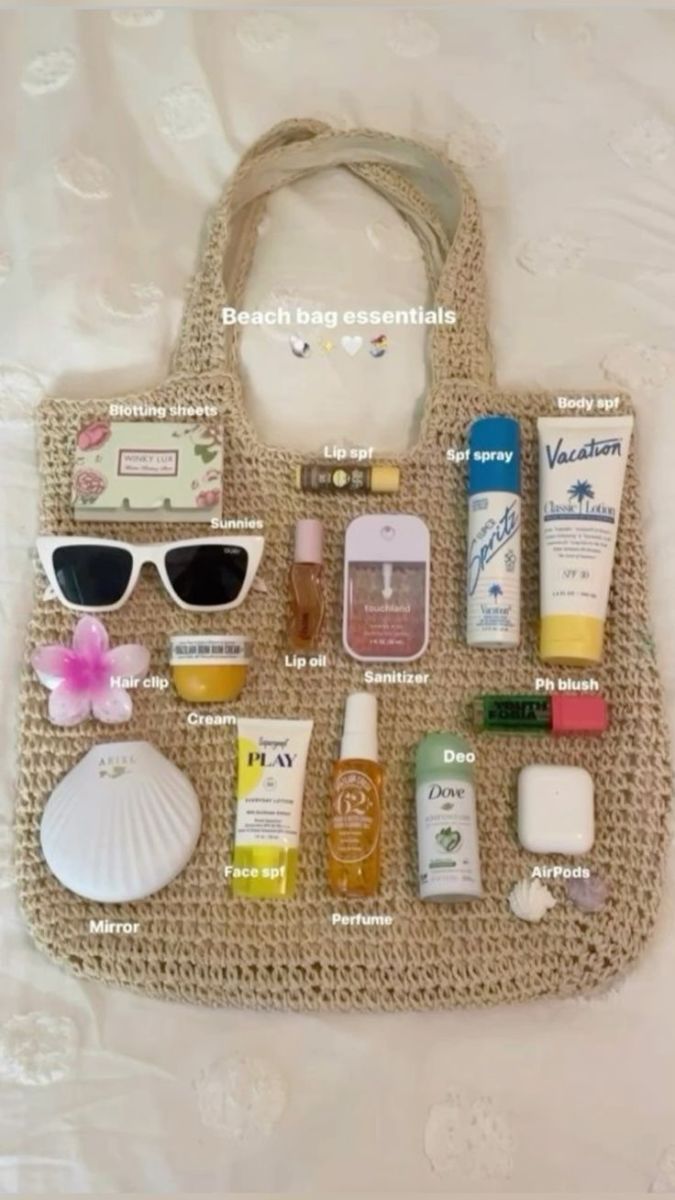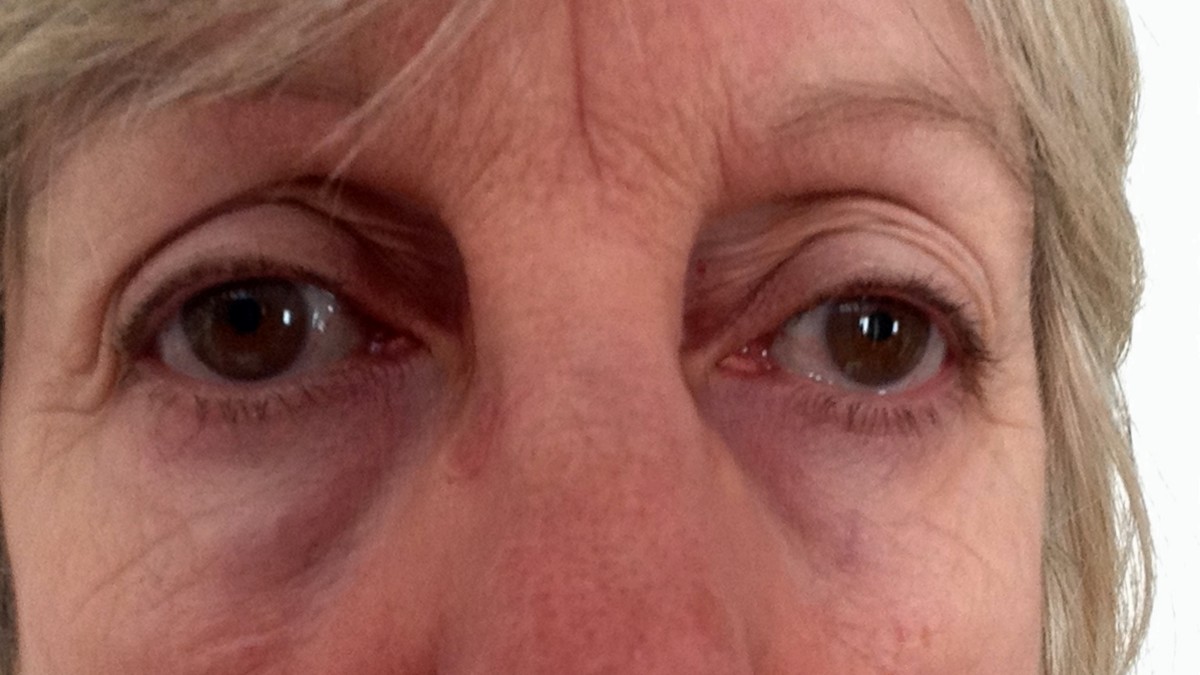Honey- Beauty from the Kitchen
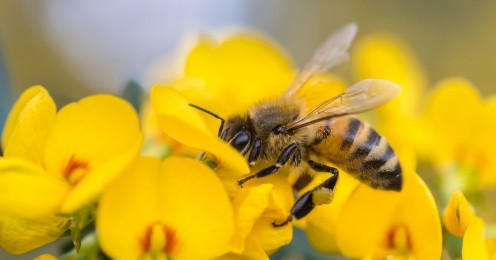
Our children learn about the process of pollination in grade school; the honeybee darting to and fro from flower to flower, gathering nectar and spreading pollen grains to keep the circle of horticultural life moving. What they often don't learn is what happens between the collection of nectar and the appearance of the honeybee's ultimate product stored so beautifully on the shelves at their local grocers. Honey is a delectable substance that naturally does wonders for the body both inside and out, a substance that has been used both medicinally and as a beauty treatment for centuries. This sweet, gooey treat is everything anyone could possibly desire in a "good for you" food.

The Who's Who of Honey
Let's talk about the rich and famous, the people who've made history by their actions and indulgences. Think Cleopatra, a woman who rocked the Roman empire and regularly added honey to her cleansing ritual............... the milk bath. Her belief that the ingredient was irreplaceable for keeping the skin smooth and firm couldn't have been too far off the mark, and the adoration of two Roman legends attests to her beauty. Queen Elizabeth I, Poppea (wife of Nero), and even Nefertiti the wife of an Egyptian Pharaoh (Nefertiti translates "the beautiful woman has arrived) also used honey in their beauty routines, and each of these women has garnered the description of having possessed great beauty.
Other historically prominent women who have credited honey as a part of their beauty regimens are Madame du Barry, England's Duchess of Marlborough, and Queen Anne of England. Once the mistress of Louis XV, Madame du Barry's ritual was to lay down and rest after applying honey as a mask. It must have done its magic as the mistress kept her king. Sarah, Duchess of Marlborough was a 17th century icon and often claimed that a rinse of honey water was responsible for her luxurious, glowing hair. Queen Anne of England also extolled the use of honey as a hair beautifier, preferring her treatment be mixed with essential oils. She attributed this ritual with maintaining her long, lustrous locks.

Honey in the Bible
Mentioned numerous times in the Bible, honey is extolled throughout the scriptures. Exodus, Proverbs, the Psalms, and the Song of Solomon speak of honey in terms of nourishment. Honey as a promise, honey as a description, and honey's value to both our physical and spiritual states. During Biblical days, women were recorded to have applied honey to their skin in addition to other valuable oils used in bathing rituals. The Book of Genesis tells us that "honey" was a part of the bribe Jacob offered to Joseph for Benjamin's release,"If it must be, then do this: Put some of the best products of the land in your bags and take them down to the man as a gift--a little balm and a little honey, some spices and myrrh, some pistachio nuts and almonds." (Genesis 43:11, NIV)
This sweet, tasty substance was a gift from God, and it was valuable. How fitting that one of the most valuable products available to consumers today is a God given natural substance; the result of the labor of only two of his creations. People spend thousands of dollars per year on man-made products filled with chemicals and toxins, and yet all they need is to study the properties of the miracles around them.
The History of Honey
With a history dating back to 3000 B.C., honey is most often recorded for its medicinal properties, something that shouldn't be overlooked when writing about its intrinsic values. When applied to scrapes and cuts, honey naturally prevents the growth of bacteria; in ancient Egypt, honey was used in the mummification process as a preservative and embalming product, and in the days of ancient Rome, soldiers carried a supply of honey for its use as an antiseptic to treat wounds inflicted during battle.
Ancient Romans were also hailed for their expertise in the beekeeping business. Overly fond of sweetness in both food and drink, ancient Roman recipes relied greatly on honey as an ingredient. Rumor has it that honey made the menu at each and every meal, and that they specifically made honey as a gift to their gods. But more importantly, the Romans also used honey for health and cosmetic purposes.
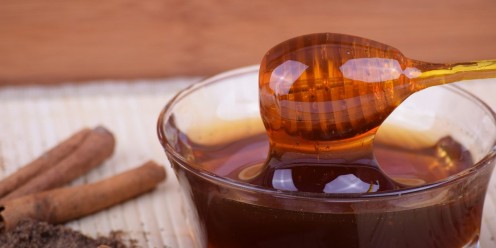
The Beauty Benefits of Honey
Today, in this age of organic foods and beauty products, the focus of beauty is returning the natural benefits of nature's finest produce. Honey enables our skin to maintain the softness, elasticity, and suppleness that we lose during the aging process. Environmental and emotional stress, in addition to the daily attack of the chemical agents lurking in our environment rob us of our ability to retain water. Honey, a natural humectant not only helps us to retain water but attracts it as well.
Although honey can be found in countless beauty products at various beauty supply stores, the expense of buying pre-packaged, expensively labeled, and preservative laden products is completely unnecessary. Available anywhere from the grocery store to your favorite market, honey is easily located and inexpensively purchased. Raw honey is without doubt the best as a topical treatment for the skin, as pasteurized honey will have lost some of its beneficial enzymes during processing.
Properties
The properties in honey admittedly vary. Some honeys are made by bees who feed on flowers, whereas others are made by bees who feed on clover. Some beekeepers even feed their bees refined sugar to increase production, and although the differences between the honeys aren't really known, all honeys have common enzymes in their content. These commonalities include twenty-four different sugars, eleven to twenty-one amino acids, eighteen types of sugar acids. eleven separate minerals, a total of five enzymes, and at least four different proteins.
Many people are wary of using what they consider to be a sticky substance on their skin, but when used on damp skin, honey is not the least bit sticky. A dollop of honey applied to damp skin with wet fingertips will give your skin a beautiful glow and provide you with a base that will better absorb other products. Honey not only works to attract moisture but helps your skin to retain moisture as well.
Honey's natural abundance of nutrients and enzymes help the skin to counter the effects of our pollutant filled environments. In other words, this natural product can help protect the only skin we'll ever have from the unnatural things we've created to harm it. Used routinely, honey will also help to reduce the fine lines we acquire in response to age and stress, help to alleviate breakouts with its antibacterial properties, and help slow the aging process of our skins. Filled with many of the nutrients craved by our ever thirsty outer layers, honey helps the skin to rebuild collagen and elastin, all while providing nourishment and rejuvenation. Amazingly, it can boast those same two benefits for our insides as well.
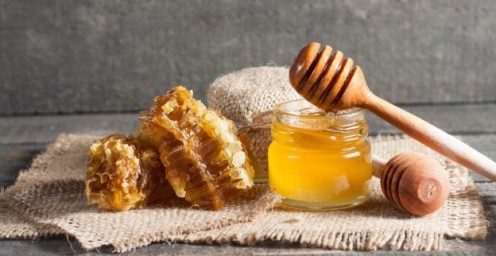
DIY Beauty Recipes Using Honey
Preparing honey for topical use on the skin is simple, quick, and affordable. Preparing a honey tonic is nothing more than a dab of honey and water smoothed across the skin. Particularly affective on the face, this tonic makes the perfect base for moisturizers and cosmetics and gives the skin a youthful glow.
As anyone with an impeccable skin care routine can attest to, a good toner is irreplaceable. Admittedly, this is the step that I myself tend to skip most often because my skin is dry, and the tightening effect provided by a good toner tends to bother me. In my search for natural beauty products I came across a toner recipe that truly doesn't leave me feeling like an old painting needing refurbishment, and that would be an application requiring nothing more than cucumber and honey.
Preparing this Cucumber-Honey toner is easier than chopping up a dinner salad and just as refreshing. Simply take one medium cucumber (peeled) and chop into small pieces until you have the consistency of a puree. Grab a sieve out of the kitchen cabinet (if you haven't a sieve check the nearest dollar store), line the sieve with cheesecloth, and allow the puree's liquid to drain into a small glass bowl (the liquid should be drained in about 15 minutes). Once your liquid is fully drained pour it into a clean bottle (again, check the dollar store) and add two teaspoons of raw honey; shake the mixture and voila, you have a safe, natural, moisture infusing toner. Note that your toner can safely be stored in the refrigerator for a week, so if you find the recipe yields more toner than you need adjust your recipe to eliminate waste.
Other easily prepared skin treatments require nothing more than the opening of the refrigerator door or a short trip to the market. Equal parts of honey and yogurt make an excellent face mask to hydrate and moisturized tired, dry skin (one teaspoon each of honey and yogurt is sufficient). Naturally smoothing skin lotion is just as easily concocted with kitchen staples. A tablespoon of honey mixed with a tablespoon of oil (olive oil or coconut oil are both a great choice) and a few drops of lemon juice will quickly and naturally leave your skin soft to the touch. Best of all, this all natural lotion will keep you soft and smooth while repairing your skin and cost almost nothing.
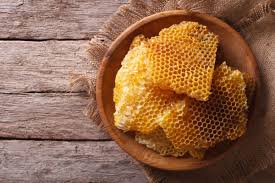
All in all, honey is a natural fit for almost every lifestyle. Take a walk down the aisle of your favorite store and you'll notice shelves filled with ointments, lotions, conditioners, shampoos, and facial products that use honey in their ingredients. Women buy these products to pamper themselves, and I have often been one of those women. My journey into natural beauty has taught me that the best products are natural, and that they don't have to claim a large part of my paycheck to take their place amongst the containers in my bathroom. Natural beauty is a small investment with a huge return; my advice is to invest in yourself and give it a try.
Sources:
The Complete Guide to Natural Healing, International Masters Publishers, @ MCMXCIX
http://allnaturalbeauty.us/hbr_hair_skin_body.htm#skin_recipe_bookmark
http://www.berkshirehistory.com/bios/sjennings.html

